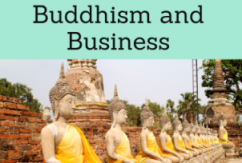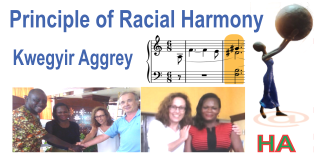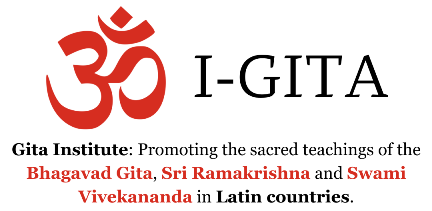Ahimsa Principle of Non-Violence and Business
Ahimsa (Non-Violence): do not lie, honesty (customers, partners, employers)

Ahimsa in thought, word, and deed
“The life of Ramakrishna has been a lesson of Ahimsa (Non-Violence). Their love knew no boundaries, geographical or otherwise. May his divine love be an inspiration to all.” Mahatma Gandhi.
The Principle of Ahimsa - Non-Violence is one of the pillars of Global Ethics.

- Introduction to Jain and Hindu concept of Ahimsa (non-violence)
- Compatibility of Ahimsa principle with World's Religions
- Ahimsa as a pillar of global ethics
- Ahimsa in thoughts, words, and actions
- Personalities who have applied the Ahimsa principle (non-violence):
- His Excellency Reem Al Hashimy (Minister of State of the Emirates. Muslim)
- Mahatma Gandhi (India. Hinduism)
- Dalai Lama and Aung San Suu Kyi (Nobel Prizes. Burma. Buddhism)
- Tawakkol Karman (Yemen. Muslim. Nobel Peace Prize.)
- Leo Tolstoy (Writer. Russia. Orthodox)
- Ellen Johnson-Sirleaf (Former President of Liberia. Liberia. Christian)
- Henry David Thoreau (Philosopher. United States)
- Albert Schweitzer (philosopher and physician, Nobel Peace Prize. Germany. Christian)
- Martin Luther King (US. Christian. Nobel Peace Prize.)
- Desmond Tutu (South Africa. Christian. Nobel Peace Prize.)
- Implications for International Business and marketing
- Analysis of some businesspeople implementing Ahimsa strategies in their enterprises:
- Alhaji Aliko Dangote (Founder of the Dangote Group. Nigeria. Muslim)
- Sheikh Mohamed Bin Issa Al Jaber (Entrepreneur and philanthropist. Saudi Arabia. Muslim)
- Anas Sefrioui (Founder of the property group Addoha. Morocco. Muslim)
- Cyrus S. Poonawalla (Founder of the Serum Institute. India. Zoroastrian)
- Muhammad Yunus (Nobel Prize and Banker. Bangladesh. Muslim)
- Senapathy Gopalakrishnan (Founder of Infosys. India. Hindu)
- Reginald Mengi (Entrepreneur and philanthropist. Tanzania. Muslim)
- Nusli Wadia (Director of the Wadia Group. India. Zoroastrian)
- Adi Godrej (Director of the Godrej Group. India. Zoroastrian)
- Vladimir Potanin (Founder of the Interros Group. Russia. Orthodox)
- Amancio Ortega (Founder of Inditex. Spain. Christian)
- Thomas Monaghan (founder of Pizza Hut. United States. Christian)

Religions and Global Business -
Religious diversity

The Subject “Principle of Ahimsa - Non-Violence” is included within the curriculum of the following academic programs at EENI Global Business School:
Course: Indian Religions and Business.
Doctorate: Ethics, Religion & Business, World Trade.

Masters: International Business, Religions & Business.

Languages:  or
or  Ahimsa (no violencia)
Ahimsa (no violencia)  Ahimsa (non-violence)
Ahimsa (non-violence)  Ahimsa Não-Violência.
Ahimsa Não-Violência.
The Principle of Ahimsa (Non-Violence) in business.
The principle of Ahimsa (Non-Violence) is perhaps one of the most powerful and beautiful principles of humanity. Moreover, it is one of the principles of Global Ethics.
Note. The open hand used in “EENI Ahimsa Vision,” represents the “Ahimsa” Jain symbol, we have incorporated it with all due respect and honor to Jainism, one of the religions that surely has more developed the concept of Non-Violence.
If we apply the Ahimsa vision to the main Zoroastrian principle; we obtain:
Non-Violence in thoughts, in words, in actions.
This broad vision of Ahimsa is EENI guiding principle
Ahimsa must understand as a broad concept; Ahimsa is not only a physical violence. Ahimsa is a progressive attitude, not passive.
Ahimsa is also: Do not lie, Honesty (customers, partners, employees), Self-control, Veracity, Integrity, Respect for All Life, Justice, No to Corruption, Social Responsibility, Philanthropy, Equality between men and women, Respect the Earth, Animals, and Plants.
Ahimsa is rights and duties.
“If you remain neutral when the injustice reigns, your way is that of oppressor” Desmond Tutu.
Ahimsa is not lying; it is honesty with our customers, partners, and employees.
Ahimsa concept has his roots in Hinduism.
“Ahimsa, non-violence, comes from strength, and strength comes from God, not from man. Ahimsa always comes from within.” Gandhi
All religions share the principle of Non-Violence. Maybe Jainism has developed this concept more than the others religions. Quakers played a major role in the abolition of slavery.
“In my heart, I carry hopefully that I can somehow be able to contribute to world peace.” Albert Schweitzer.

Dalai Lama and Aung San Suu Kyi, both Buddhists, are today considered a world leaders for peace.
“All beings want their happiness. He who seeking his happiness does not hurt with violence; he will achieve the happiness after the death.” Udana II-III/Buddha.
“My teaching is similar to other. The strong do not die of natural causes; this will be the starting point of my doctrine” TAO TE KING XLII
“Through violence, you may kill the imposter, but you cannot kill the lie, nor establish the truth. Hate cannot hide the hate: only love can do this” Martin Luther King.
If we explore the Ahimsa principle applying Zoroastrian principles (Good Thoughts, Good Words, Good Deeds):
A) Ahimsa should arise in our thoughts:
Results: Self-control, veracity, honesty, integrity, non-greed, respect.

Any “thinking part” of the company should practice Ahimsa. Moreover, should propagate this concept in all directions (suppliers, customers, employees) For example:
- All Marketing and business plans should be designed under Ahimsa vision
- Product design should be Ahimsa:
not maliciously changing product's life cycles, quality, Safety measures, Respect religious
diversity (Halal, Kosher), develop products for all humanity, not only for segments with high purchasing power.
- The Moroccan Businessman Anas Sefrioui is building social housing in the African continent
- Religion and international product/service policies
- Fair Price Policy
b) Our words should be Ahimsa
Results: Not to lie, not to slander, and no false oath.
Application of the Ahimsa principle in words expressing “Ahimsa thoughts of the company.”
- Truthful Communications and Marketing Policy: based on true, not based on lies
- Contracts, agreements, and codes of conduct
c) Our deeds should be Ahimsa:
Results: Not physical violence, not to kill, not physical abuse, respect for the environment, charity, and philanthropy.
“Every form of violence or force in pursuit of the economic goals should be rejected (Slave labour, compulsory labour, child labour, corporal punishment)” Global Ethics Declaration.
Ahimsa is respect for all life: humans, animals, plants, environment.
- Principle of Humanity
- Human rights protection in our enterprises, partners, employees, and providers
If we explore the Ahimsa principle applying a Jainism vision (“not to kill any living being”), we can extend the Ahimsa principle to the animals, plants, and our earth.
Ahimsa is also equality between men and women.
Tawakkol Karma - Nobel Peace Prize (Yemen).
Ahimsa is also justice and the rule of law
- Responsibility, rectitude, transparency, fairness
- To comply with the prevailing rules and legislation of the national and international law
- Perhaps the high moral rectitude and honesty tend to be a feature of Sikhs
“My goal is to create a more peaceful and stable world for the future generations” Mohamed Al Jaber (Saudi Arabia, Muslim)

Ahimsa is also No to Corruption and dishonest practices.
- Bribery, collusion agreements, patent piracy, industrial espionage.
- Global Ethics and legal instruments will be the foundations that will allow us to eradicate the corruption
Ahimsa is also a social responsibility - Philanthropy.
“The charity practiced as a duty; without expecting any reward, in the appropriate place and time and person who needs; it is said to be satwwica” Guita XVII-20
Ahimsa is also the Golden Rule -The “Ethic of reciprocity.”
Virtually all the higher World's Religions have a version of the golden rule. Moreover, is the cornerstone of the Confucian ethics. In the Analects is cited three times:
“Benevolence. Is not to do to others what you would not want to be done to yourself” Analects XII-1
Other versions of the Golden Rule.
- “Do to others what you want them to do to you” Jesus
- “Men gifted with intelligence and purified souls should always treat others as they wish to be treated” Mahabharata 13, 115-22 (Hinduism)
- “This is the sum of duty: do not do to others what would cause pain if done to you.” Udana V (“The venerable Sona”) - Buddhism
- “We must treat others as we wish others to treat us” Parliament of Religions
- “What you do not want done to yourself, do not do to others” Global Economic Ethic Manifest
“The golden rule of Domino Pizza is to treat others as you want to be treated” Thomas Monaghan
EENI Principle of Racial Harmony (James Emman Kwegyir Aggrey).

(c) EENI Global Business School (1995-2025)
Top of this page










 WhatsApp
WhatsApp
